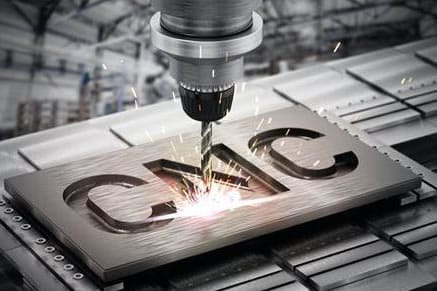CNC Machining has transformed the manufacturing industry, providing an efficient and precise method for producing components and pieces across a wide array of industries. It is a cutting-edge technology that uses computer-controlled machinery to perform cutting, drilling, milling, as well as other tasks on various kinds of materials like metals plastics, and wood. The precision that can be achieved via CNC machining is unparalleled, allowing for complex plans to be made with extreme accuracy. By replacing manual intervention by automation, CNC machines have significantly diminished the risk that human error will occur and has also improved productivity. This blend of precision and efficiency has made CNC machining a vital aspect of modern manufacturing.
In the core of CNC machining lies the ability to transform digital drawings into physical parts. By using computer-aided design (CAD) software designers and engineers create elaborate 3D models for the wanted part. The digital models are transformed into precise directions, or “G-code,” which the CNC machine uses to complete actions like cutting, drilling and milling. This control is digital, which allows for a high level of precision which manual machining cannot attain. It also means that after a design is integrated into the machine it is able to be reproduced precisely, creating similar parts in large numbers without the need for manual adjustments. This repeatability is essential in all industries where precision as well as consistent production are important.
The effectiveness of CNC machining is another key element in the widespread use of CNC. The traditional machining techniques require experts to manage the machine, modify settings, and change tools for each operation. This is not only long-lasting but also subject to errors made by humans. CNC machining, on the contrary, can automate the process, which allows machines to run continuously with the least amount of supervision. After the programme is established and the machine is loaded with the required material It can carry out multiple actions without interruption, significantly shortening the production process. CNC machines also have the capability to operate 24/7, which makes them ideal for high-volume production runs. This level of efficiency enables producers to meet strict deadlines, boost their production, and reduce labor costs, all while maintaining high-quality standards.

Another key benefit to CNC machining services effectiveness is its speed. With the help of automation, machining, manufacturers can significantly reduce the time taken to make parts, which leads to faster cycles of production and reduced costs. Because CNC machines operate 24/7 with minimal human supervision it is possible to increase production but without degrading the quality. This level of automation also lowers the possibility of human error, ensuring that every component produced is to the exact specifications outlined in the digital designs. In addition, CNC machining allows for “lights-out” manufacturing, where machines are still in operation even after the workers leave, further boosting productivity and cutting down on labor costs.
As well as speed and precision, CNC machining is valued by its value-for-money, specifically for large-scale production runs. After the initial set-up and programing of the machine are completed making additional parts will require minimal input, reducing the overall cost of production. If you are a manufacturer working with costly metals like aerospace grade alloys, CNC is a method of reducing waste by improving the process of cutting, which ensures that each component produces with little material loss. Precision and efficiency are what allow CNC cutting the perfect choice to both prototypes and large-scale production, as it allows makers to swiftly test and refine designs, as well as keep costs of production in check.
The impact on the environment on the environment CNC machine is a different aspect that is worth thinking about. Traditional manufacturing processes typically produce a large amount of waste material, CNC machines are recognized for their material efficiency. With precise cutting and shaping material, CNC machining minimizes waste and reduces both the cost of materials and the environmental impact. Additionally, the automation of CNC machines decreases the amount of energy consumed when compared with manual processes. Modern CNC machines have been designed using sustainability in mind. employing energy efficient motors and systems for further reducing the carbon footprint of their machines. This makes CNC machineries an eco-friendly choice for companies looking to reduce waste and conserve resources.


